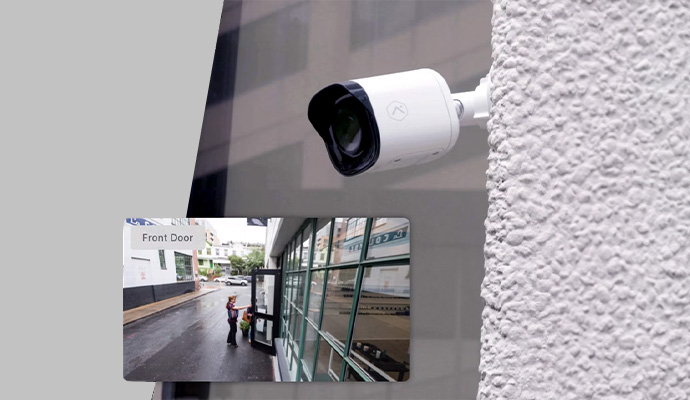The Evolution of Security Alarm Systems A Comprehensive Guide

Understanding the Basics of Security Alarm Systems
Security alarm systems have become an indispensable part of modern homes and businesses. These systems are designed to detect intrusions, fires, and other emergencies, providing a crucial layer of protection. They work by sensing various triggers, such as door or window openings, motion, or smoke. When a trigger is activated, the system sends an alert, either through a loud siren, a notification to a mobile device, or a signal to a monitoring center.
Types of Security Alarm Systems
There are several types of security alarm systems, each with its own unique features and capabilities. Here are some of the most common types:
- Wired Systems: These systems use physical wires to connect sensors and control panels. While they are reliable, installation can be more complex and intrusive.
- Wireless Systems: Wireless systems use radio frequency signals to communicate between components. They offer greater flexibility in installation and are easier to expand.
- Hybrid Systems: Hybrid systems combine the best of both worlds, using a mix of wired and wireless components. This approach offers flexibility and reliability.
Key Components of a Security Alarm System
A typical security alarm system consists of the following key components:
- Control Panel: The central hub of the system, responsible for monitoring sensors and triggering alarms.
- Sensors: Devices that detect intrusions or emergencies, such as motion sensors, door/window sensors, and smoke detectors.
- Keypads: Used to arm and disarm the system, as well as to access other features.
- Sirens: Audible alarms that deter intruders and alert neighbors.
- Remote Monitoring: Allows users to monitor their system remotely through a smartphone app or web portal.
Advanced Features of Modern Security Alarm Systems
Modern security alarm systems offer a wide range of advanced features to enhance their effectiveness and user experience:
- Home Automation Integration: Integrate your security system with other smart home devices, such as lighting, thermostats, and locks, for seamless control.
- Video Surveillance: Add cameras to your system to visually monitor your property and record video footage of incidents.
- Professional Monitoring: Enlist the services of a professional monitoring center to receive 24/7 surveillance and rapid response to alarms.
- Smart Notifications: Receive customized notifications on your smartphone, including real-time alerts, video clips, and system status updates.
Factors to Consider When Choosing a Security Alarm System
When selecting a security alarm system, consider the following factors:
- Property Size and Layout: Determine the number and type of sensors needed to adequately protect your property.
- Budget: Set a realistic budget and prioritize features that are essential to your needs.
- Level of Security: Decide whether you need a basic system or a more advanced one with additional features.
- Professional Monitoring: Consider the benefits of professional monitoring, especially if you’re often away from home.
- Ease of Use: Choose a system that is easy to operate and navigate.
- Compatibility with Smart Home Devices: If you have other smart home devices, ensure compatibility with your security system.
Installation and Maintenance of Security Alarm Systems
Proper installation and maintenance are crucial for the optimal performance of your security alarm system.
- Professional Installation: It is recommended to hire a qualified security professional to install your system.
- Regular Maintenance: Perform regular maintenance checks, such as battery replacements and sensor tests, to ensure reliable operation.
- Software Updates: Keep your system’s software up-to-date to benefit from the latest features and security patches.
The Benefits of Investing in a Security Alarm System
Investing in a security alarm system offers numerous benefits, including:
- Deterrence: A visible security system can deter potential intruders.
- Early Detection: Quick detection of intrusions or emergencies can minimize damage and loss.
- Peace of Mind: Knowing your property is protected can provide peace of mind.
- Insurance Discounts: Many insurance companies offer discounts for homes with security systems.
- Remote Monitoring: Stay connected to your property, even when you’re away.
By carefully considering your specific needs and selecting the right security alarm system, you can significantly enhance the security of your home or business.








